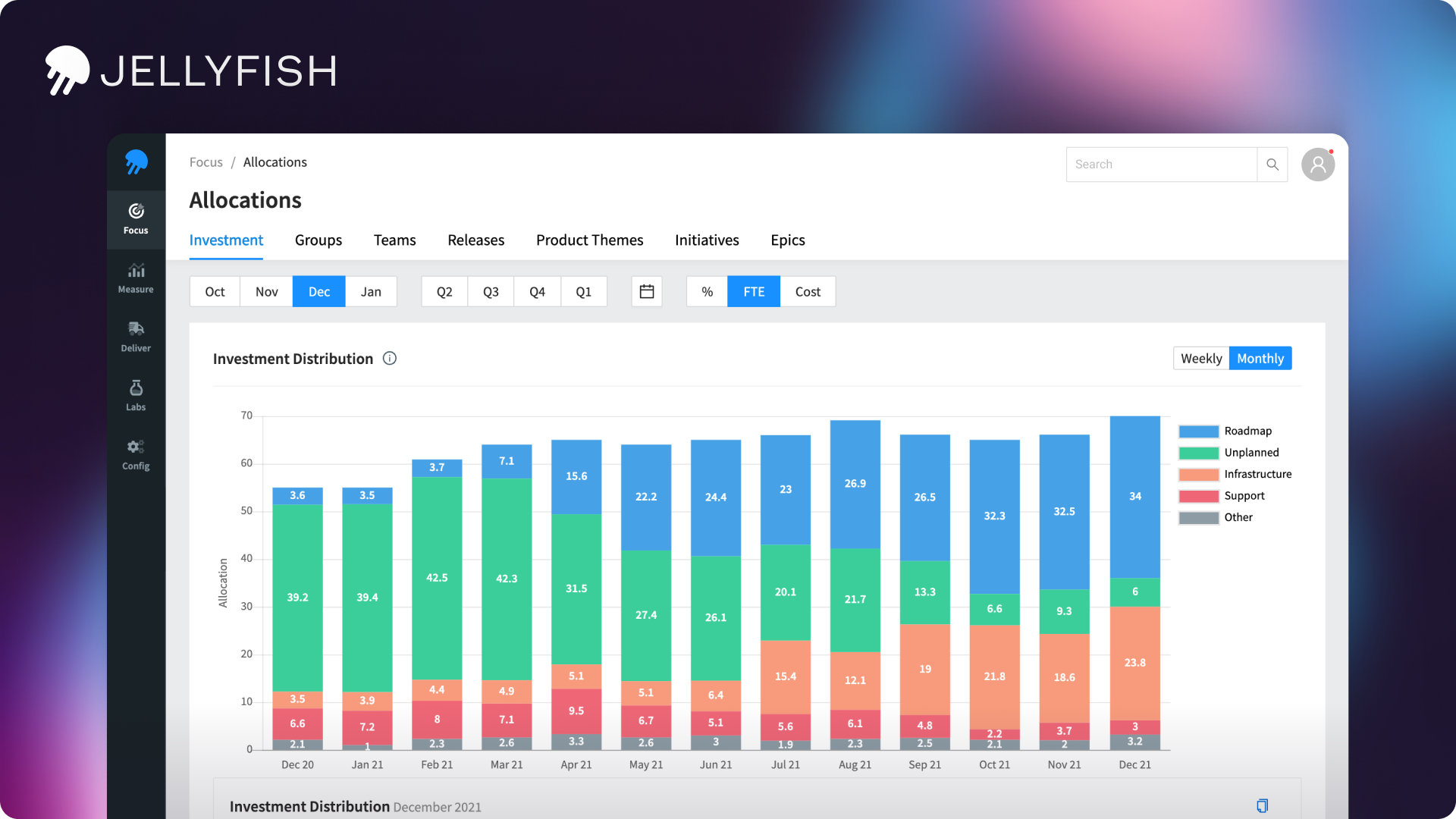As more companies become software companies, what is being created still needs to align with business objectives. Jellyfish believes this can be done by giving software engineering leaders the data and insights they need to do that.
“The way that engineering teams are led, managed and tied to the business is still the same as it was 20 years ago,” Andrew Lau, co-founder and CEO of Jellyfish, told TechCrunch. “It’s not just about making that job easier. It’s helping make businesses run more efficiently so they can make smarter decisions. Engineers understand what they work on and how it affects and grows the business. Nobody wants to be in a dark room and disconnected.”
Lau and his co-founders David Gourley and Philip Braden met 20 years ago when Gourley and Braden hired Lau to work with them at e-commerce search software company Endeca, which they took from eight to 550 people and sold to Oracle for $1.1 billion in 2011.
They came back together in 2016 with the idea for Jellyfish that came out of their own experiences and challenges of running big engineering teams — namely trying to link the business up with what the engineers are doing.
“For us, we went looking for a chance to do for engineering what Salesforce did for sales,” Lau added. “Engineering is the most important part of most companies today, but yet, we haven’t advanced or changed the way that we connect the work that teams do to the business and vice versa.”

Jellyfish dashboard. Image Credits: Jellyfish
Their idea became Jellyfish, which essentially pioneered the term “engineering management,” to provide a software tool for insight into engineering organizations, including what they are working on and how they operate.
To continue developing its technology, the company announced Tuesday $71 million in Series C investment led by Accel, Insight Partners and Tiger Global, with participation from Wing Venture Capital and other existing investors. The latest round comes a year after it raised $31.5 million in Series B funding. In total, the company has raised just over $114 million.
The company wasn’t necessarily considering a new round of funding, but Lau explained that Jellyfish more than tripled revenue in the last year. In addition, its team of 125 people “has been doing great” and “found really strong legs through the year.” Two years ago, Jellyfish had 20 employees. That, along with customer growth — around 175 customers — led the company to take the new capital to advance its mission.
“It’s a really hard world, and it’s been complicated and accelerated by how much every company has really put a fine point on needing to be a software company and even an excellent software company,” Lau added. “They need help making sure the teams are aligned.”

